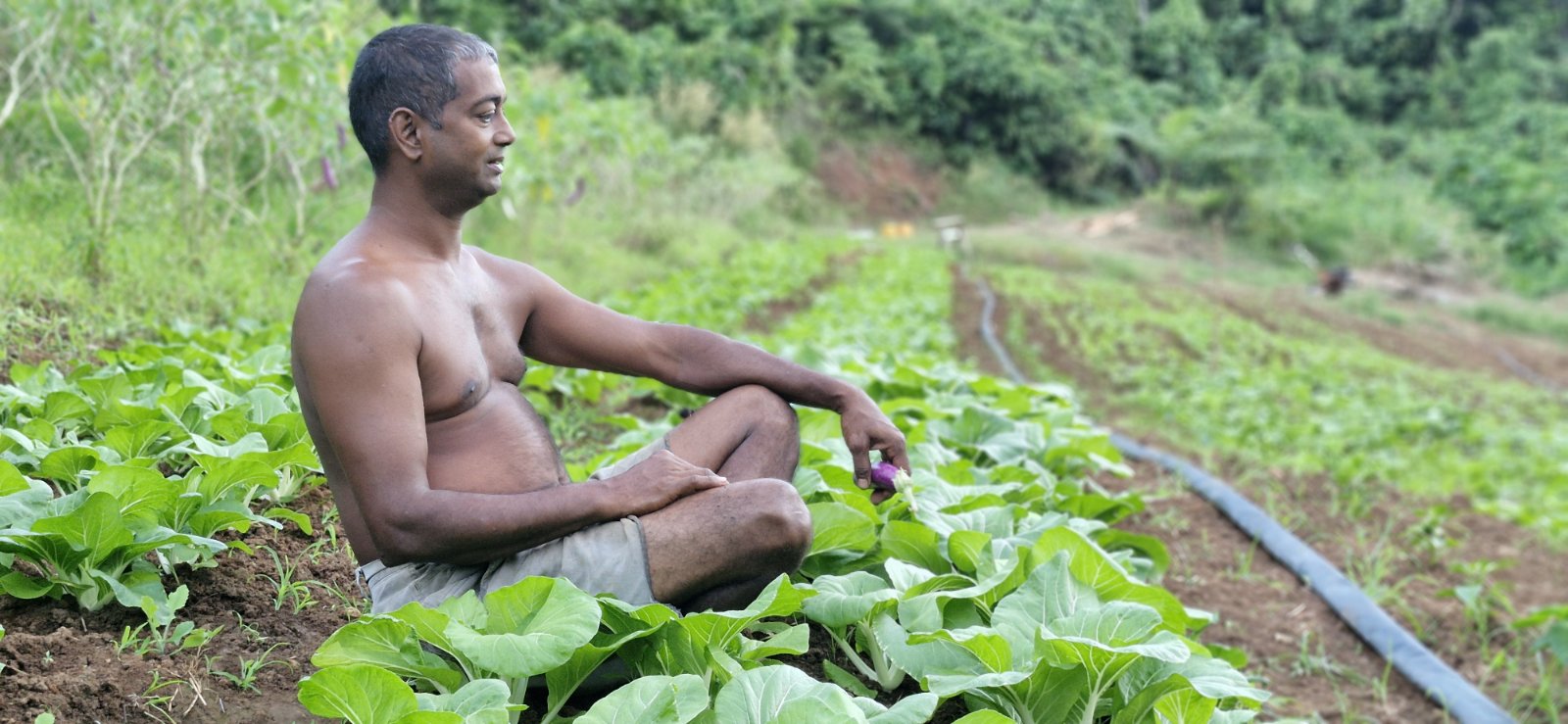Macuata farmer thrives using smart agricultural practices

Since industrialisation, conventional agricultural practices have put increasing pressure on land to produce more per hectare. Agrochemicals, monoculture cropping systems and intensive tillage have led to soil degradation which damages the landscape.
Climate smart agricultural practices can be part of the solution and help transform damaged landscapes into thriving ecosystems. By adopting practices that promote soil health, biodiversity and ecosystem balance, smart agricultural practices seeks to create a harmonious relationship between agriculture and nature, leading to healthier soils, stable yields and a more resilient landscape.
In Nasalia Sub-division in Bocalevu, Macuata, 50-year-old Yashwin Nair Kumar has been practicing smart agricultural practices and has been working closely with the Ministry of Agriculture and Waterways to better manage his farm.
Before becoming a full time farmer, the father of two children worked as a taxi driver, school gardener and a truck driver for the Bauxite Mining Company in Bua and this is where he gained experience in operating a grader and a bulldozer.
He is an educated farmer who ensures to keep records of all activities carried out on the farm on a daily basis.
“I am happy to be farming and am always working towards achieving my short to long-term objectives. I always follow the advice given by the technical officers of the Ministry as this will ensure sustainability of my crops in the long run,” said Mr. Kumar.
The hardworking farmer obtained a loan from the Fiji Development Bank and purchased a van which he uses for transporting his produce to the Labasa Market on a weekly basis.
Through his dedication and best practices, Mr. Kumar was awarded the Best Slope Land Management Farmer at the National Agriculture Show 2023.
“I have been practicing an integrated approach with the advanced technology of agroforestry principles and this is planting yaqona and dalo in between selectively felled forest trees.
His hard work and perseverance was paid off when the Ministry of Agriculture and Waterways assisted him with a Power Tiller and Irrigation Kit.
Mr. Kumar and his ever helping wife are two of the most prominent farmers in Wailevu district as they cultivate pineapple, assorted vegetables and root crops. Last month, the organic team from the Koronivia Research Station installed a Bacterium Culture tank on his farm.
Bacterium Culture is made from Lactobacillus bacteria extracted from raw milk, obtained from the Ministry’s dairy farm, using rice wash water and then fed with molasses for bacteria to feed on during storage.
The mixture can be stored for
two or three months, after which its viability would start to decrease.
Director for Land Resources Planning Division, Amena Banuve says that the Ministry is looking to enrich soils of used and idle lands through application of organics because whatever chemical fertilizer that is being used now will contribute to unsustainable agricultural practices when abused.
“Farmers often want to hasten the process of weed control by mixing so many weedicides and this eventually kills micro-organisms in the soil,” he said.
“What we are trying to do now is restore microorganisms to the soil and let them thrive and multiply and gradually reduce our consumption of chemical fertilizers and this is where the Bacterium Culture comes in to enhance microbial activity in the soil” added Mr. Banuve.
“Farmers can really see the difference in the quality of their crops where bacterium culture was applied and this will certainly help them in maximising their land and also in the restoration of soil nutrients.”
The Ministry is encouraging farmers to start practicing smart agricultural practices to ensure sustainability of their farms for years to come.
-Ends-
